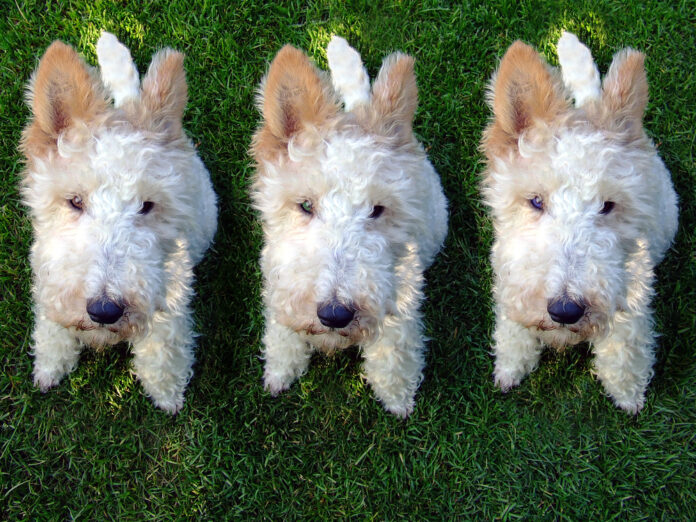It’s heartbreaking to lose a beloved dog. And that heartbreak is almost inevitable. While lifespans vary from breed to breed, dogs live about 10 to 15 years, with small breeds living longer than large breeds. Meanwhile, humans can live 80 years or more. So, yes, the odds are good that if you love a dog, one day, you’re going to have to say goodbye.
But what if you cloned your dog? It can be done. In fact, dogs are one of the most successfully cloned animals. Would that mean you could bring back your beloved pet in a fresh, new body? Unfortunately, it’s not that simple.
Are Clones Exact Replicas?
(Credit: Akifyeva S/Shutterstock)
In the popular imagination, a clone is an exact copy of the animal being cloned. But that’s not how biology works, explains Gita Gnanadesikan, an evolutionary biologist and comparative psychologist at Emory University who studies how genetics, environment, and experience combine to produce variation in animals. “We often think of DNA as a literal blueprint for the whole organism,” she says, “but it’s more a vague set of instructions that might be more or less followed, depending on the situation, the environment, what trait you’re actually looking at.”
This means that while cloned animals do have almost exactly the same DNA as the original animal, they aren’t guaranteed to have the same personality or even the same appearance. “The end result will always be at least a little bit different,” says Gnanadesikan.
Many things affect how the genetic blueprint manifests in appearance and behavior. Sometimes, small changes to the DNA are made during the cloning process. But even when no one is fiddling with the genes, natural changes to DNA can occur at various times in an organism’s development. These are often epigenetic changes — changes to DNA that regulate whether genes are turned on or off. Epigenetic changes can happen even before your puppy is born, resulting in subtle differences in color or markings.
When it comes to personality, the differences are likely to be much more obvious. Gnanadesikan has done research on the heritability of behavior in dogs. She’s found that most behaviors are intermediately heritable, meaning that that, yes, genes matter, but genetics is often less than half the picture. What matters more, she says, is the environment: things such as early training, early experience with other dogs and people, and maybe even certain formative memories.
So, if you have your dog cloned, you’ll get a puppy that will probably look very much like your first pup. But it won’t be a duplicate of your beloved pet. In fact, its personality may be quite different.
Read More: A Beginner’s Guide To Cloning
Is Cloning Ethical?
But that’s not the only reason you might not want to clone your dog, even if you can afford the $50,000 price tag. Cloning raises some serious ethical issues. Hilary Bok, a philosopher at Johns Hopkins University who specializes in bioethics, wrote in a 2002 paper, “Cloning causes animals to suffer.”
She points out that the dogs used as egg donors must have their ovaries stimulated with hormone treatments. Then, the eggs must be surgically harvested. The dogs who are used as surrogate mothers are at greater risk of dying or experiencing complications than are dogs who become pregnant naturally. The harms are so serious that the ASPCA has called for a moratorium on research, promotion, and sale of cloned pets.
How to Get the Pet You Want
In any case, what makes your dog so special to you is not just the appearance and temperament of your pet. It’s the interaction between you and your dog; in other words, it’s your relationship. That’s something you can’t get out of a test tube. You have to build that yourself, day by day, walk by walk, with each visit to the dog park, each game of Frisbee, and every caress and cuddle along the way. Each relationship will be different, whether your new puppy is a clone of your previous beloved pet or has its own unique set of genes. “I think a lot of people don’t realize how malleable animals can be when they are socialized in safe conditions,” Gnanadesikan says.
The good news is that love can help us heal from loss. And there are many, many animals in shelters waiting to be loved and to love you back.
Read More: Scientists Might Bring Back These 7 Extinct Animals
Article Sources:
Our writers at Discovermagazine.com use peer-reviewed studies and high-quality sources for our articles, and our editors review them for accuracy and trustworthiness. Review the sources used below for this article:
Source : Discovermagazine











